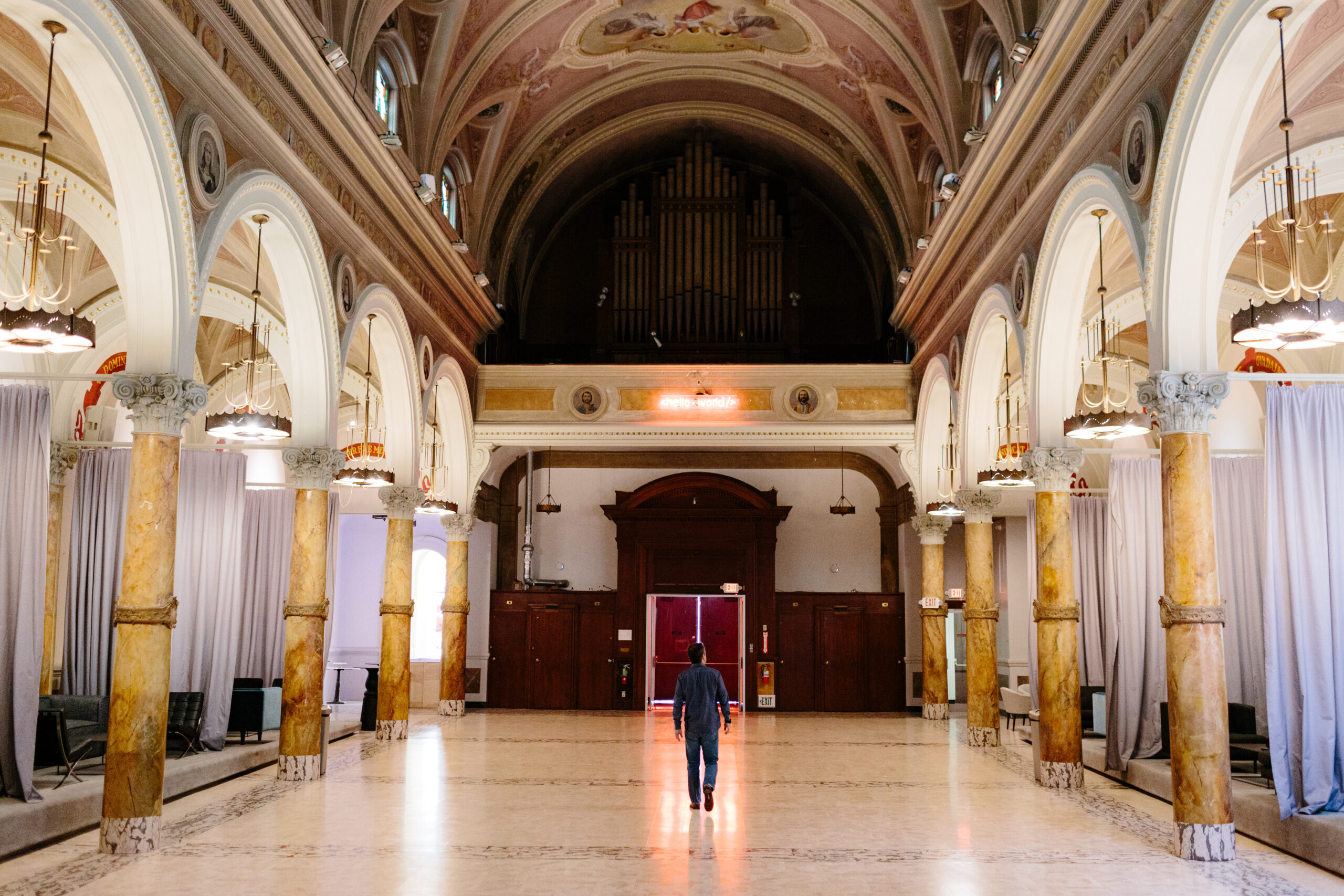A Russian oligarch, $28 million, an abandoned church and the dream of a new tech religion may sound straight out of a bad sci-fi novel. But it’s real.
In a new investigation, The San Francisco Standard reveals how a Russian billionaire connected to Vladimir Putin invested $28 million into the Bay Area in 2015 and 2016 through a secret network of companies.
His most notable investments were in a self-driving car technology company and—wait for it—a defunct San Francisco church repurposed as a startup incubator.
Then, in 2018, the United States sanctioned the oligarch in question, Suleyman Kerimov, as retaliation for the Kremlin’s “malign activity around the globe.” His foothold in the Bay Area began to dissipate.
Here are five takeaways from The Standard’s new investigation.
1. Who’s Suleyman Kerimov? How’d he get to San Francisco?
Kerimov is a Russian oligarch who made most of his fortune by investing in Polyus, a Russian company that is the world’s largest gold producer.
In 2015 and 2016, Kerimov funneled part of his fortune into the Bay Area’s white-hot tech scene through a venture capital firm named GVA Capital.
Described as “not your daddy’s typical VC firm,” GVA Capital touted its investments in early-stage startups and its international connections without naming the source of its funds.
Founded by Russian businessmen Magomed Musaev and Pavel Cherkashin, the venture capital firm brought on Kerimov as a client and found investment opportunities for him.
2. Three Investments, One Big Success
Kerimov made three investments through GVA Capital:
3. Wait, Did You Say ‘Startup Temple’?
Yep, we did. The ideas man behind this unusual project was Cherkashin, who envisioned a place for investors and startup founders to mingle, party and even cohabitate in a co-living space built in the former church’s rectory.
In a magazine column from 2017, Cherkashin compared startup culture to a “religious experience” and beseeched readers to build an IRS-approved “Church of Hacktivism,” offering to cover costs and provide event space.
But the Startup Temple failed as a business—and as an investment for Kerimov.
In 2020, after three to four years of struggling, the company ran out of money amidst the pandemic. Cherkashin could no longer pay his U.S. creditor, and the building was foreclosed upon. The church now stands empty.
4. Thwarted Plans for a Homeless Shelter
After he was elected to his third term on San Francisco’s Board of Supervisors in 2015, Aaron Peskin set out to fulfill a campaign promise: to bring a homeless shelter to Russian Hill. He had a building in mind for it—the Nuestra Señora de Guadalupe church.
But during lease negotiations with the owner, he got some bad news.
“They had sold it to this unnamed party. And we were like, ‘What the hell?’” Peskin said. “We were told, ‘These people gave us a huge amount of money.’ To me, it made no sense.”
That party, of course, was Startup Temple Fund, backed by Kerimov’s money.
The thwarted Russian Hill homeless shelter reveals the impact of capital flight and oligarchic investments on a local level.
Had Kerimov never invested in the church, Peskin believes the neighborhood would have received a homeless shelter in 2016. It took three more years to find another location in the area, delaying a critical resource for the city’s growing unhoused population.
5. U.S. Sanctions Caught Up With Kerimov
In 2018, the U.S. imposed sanctions on Kerimov. But his San Francisco investments were not clearly affected because they were registered to an offshore company the oligarch didn’t directly own.
In 2022, after Russia’s full-scale invasion of Ukraine brought more sanctions, the U.S. blocked Heritage Trust, the Delaware trust holding Kerimov’s investments, freezing them.
On Nov. 14, the U.S. sanctioned Kerimov’s wife, children, nephew and alleged proxies. Heritage Trust ultimately benefits the oligarch’s children, grandchildren and potentially other family members, The Standard’s investigation found.
